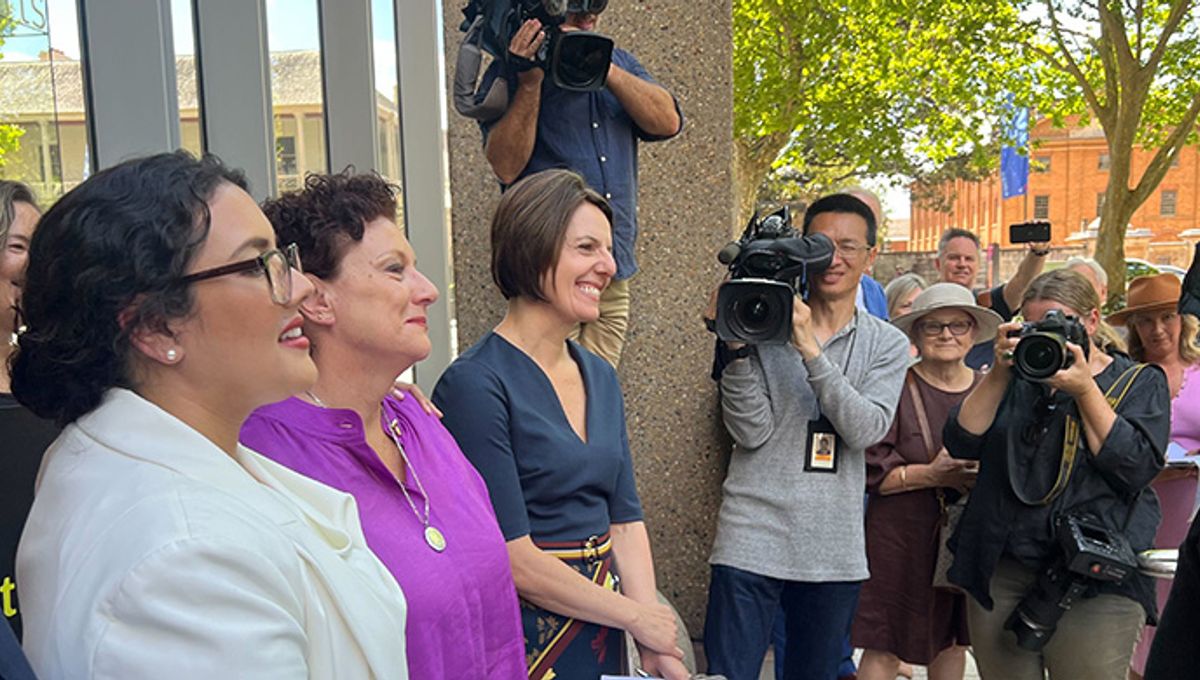
After spending over two decades behind bars, Kathleen Folbigg’s convictions for killing her four children have now been quashed thanks to scientific evidence that suggested they died as a result of rare genetic conditions, not murder or manslaughter.
Folbigg, now 56, is expected to seek one of the highest compensation payouts ever seen in Australia following the recent decision by the New South Wales Court of Criminal Appeal.
The decision was widely welcomed by scientists who have followed the case, although they stressed that the legal system needs drastic reform to ensure miscarriages of justice like this don’t occur again.
“The Australian Academy of Science welcomes today’s decision by the Court of Criminal Appeal to squash the convictions of Kathleen Folbigg. But make no mistake, that without law reform, these sort of miscarriages of justice will continue,” Anna-Maria Arabia, the Chief Executive of the Australian Academy of Science, said in a statement outside the court on December 14.
Tabloid newspapers once branded Folbigg as “Australia’s worst female serial killer.” In October 2003, she was sentenced to 40 years in prison after being found guilty of murdering her three infant children – Patrick Allen, Sarah Kathleen, and Laura Elizabeth – as well as the manslaughter of her fourth child, Caleb Gibson. The prosecution alleged Folbigg murdered her four young children between 1989 and 1999 by smothering them during periods of frustration.
Many had their doubts about whether the court’s decision was correct, but the case was truly blown open in 2019 with a new scientific discovery: a rare genetic mutation in the CALM2 gene.
In October 2018, the genomes of the Folbigg’s deceased children were sequenced and it was revealed that the two girls, Sarah and Laura, had the CALM2 gene variant. As shown by previous research, the variant of the CALM2 gene affects the way calcium binds to cardiac cells and has been linked to heart arrhythmia and sudden cardiac death. Further research found that the two boys had another rare genetic variant in the gene BSN, linked to lethal epileptic seizures in mice.
Scientists began to rally around the case, asking for this new evidence to be taken into account. In 2021, 90 top scientists and medical practitioners from around the world, including two Nobel laureates, signed a petition asking the Governor of New South Wales for the pardon and release of Folbigg.
Their efforts eventually paid off. Following an independent inquiry, Folbigg was freed from prison in June this year and she received a pardon. Now, in the eyes of the law, the conviction has been wiped from the record.
“I hoped, but never really believed I would see, justice finally served with Kath’s acquittal today,” Associate Professor Xanthé Mallett from the School of Law and Justice at the University of Newcastle, said in a statement.
“This case should rock the foundations of the criminal justice system in Australia, which has moved at glacial pace to acknowledge and then act upon irrefutable scientific evidence that Kath was innocent,” added Mallett.
“There is no way to compensate Kath for the years she has lost, the milestones she has missed, the memories she simply doesn’t have; but that she should be financially recompensed is beyond dispute,” she continued.
Folbigg’s lawyer, Rhanee Rego, has indicated that her client will be pursuing the state for compensation. Rego declined to give an exact figure, but reportedly said it would be “bigger than any substantial payment that has been made before”.
Source Link: Mother Jailed For Killing Her 4 Children Has Convictions Quashed Thanks To Science